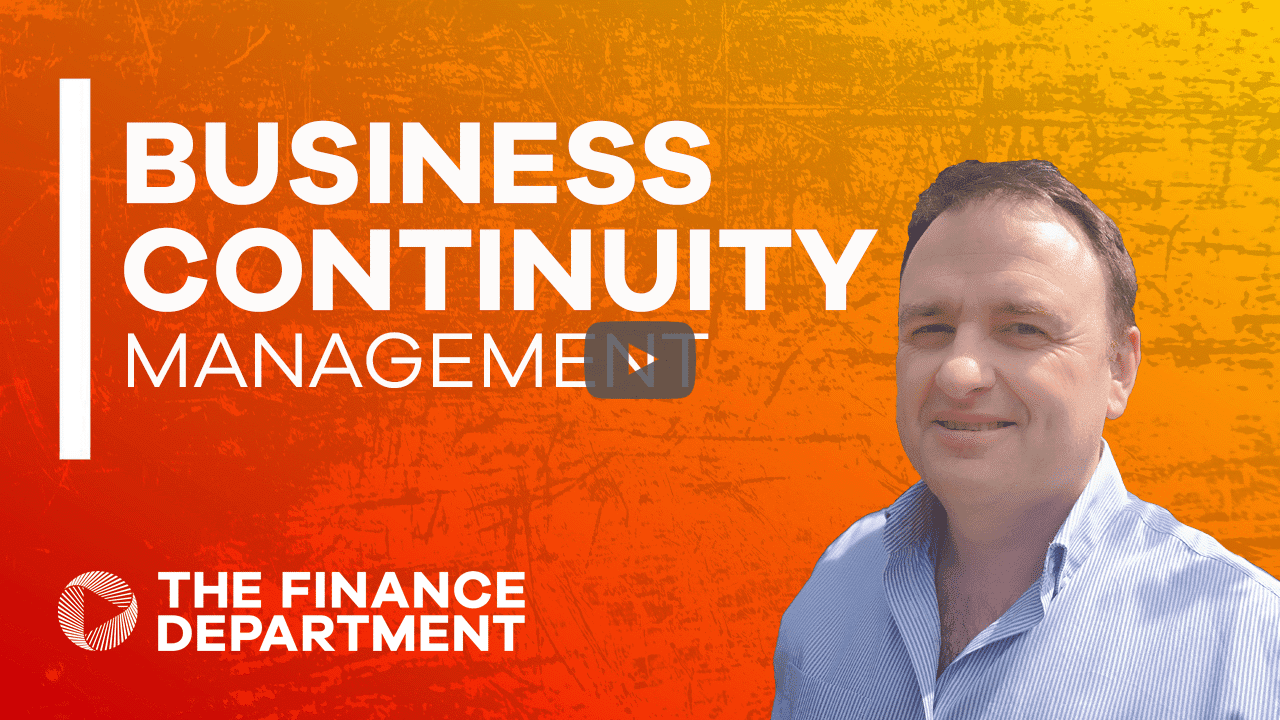Join today and start learning
TFD is the learning platform built for finance professionals.
This content is available as part of our bitesized video series.
Watch this video today by joining our free community.
Video : Your EIS questions answered
Your EIS questions answered:
David Brookes, Tax Partner at BDO, answers questions about the Enterprise Investment Scheme (EIS) at SyndicateRoom Live, December 2017.
How does a company do out here within three years of investment of EIS?
That’s fine if it, IPO’s, and in fact a name IPO is still treated unquote it for tax purposes anyway. As long as there are no arrangements at the time to IPO of the time of investment that would be fine.
Could you explain a bit about SEIS and any changes to that?
CDIS and CDIS changes was the question, the investee company rules are broadly the same as EIS. So, some of the tightening will apply to CDIS as well. CDIS has slightly less stringent requirements in terms of some of the EU state aid rules because its de minimis state aid and therefore there’s less around the growth and development requirements and so on, but the reliefs remain the same for CDIS so it’s still a fifty percent income tax relief and still a three-year holding period.
I think you touched on this, but is there is a formal definition of a knowledge-intensive company?
There is a formal definition of a knowledge-intensive company, it’s quite long-winded and painful to go through I’m about to do a flyer actually with a flowchart because that’s the easiest way to look at it, but broadly it’s those doing significant R&D and IP development or companies with a large number of employees that have got an MA or above degree so. But you’re not allowed to just have PhD students or PhD graduates I should say making coffee and do filing they have to be doing a job relevant to the qualification as well so they’ve already thought about that one.
Just a quick one. So, with Brexit, is there any sort of forwarding about how that would affect state aid rules? I’m assuming then there would be no oversight from them? And then we’d have to manage that internally?
Yes, it’s a good question about Brexit obviously we don’t know what Brexit will look like still. I mean on the one hand you would think that if we’re not part of Europe we wouldn’t have to abide by the state aid rules, but obviously if we want to be part of the same market, I suspect they will still apply some kind of state aid rules otherwise it would be unfair if our UK businesses had state aid and could therefore compete and give a disadvantage to Europe.
So even though I think you know distancing ourselves from Europe should mean less oversight in terms of state aid, I’d be surprised if it goes completely just because we obviously still wanted to trade heavily with Europe.
Do you expect any further changes to EIS rules?
I think the changes that might come next to the ones that were hinted at in the Patriot Capitol review so I’m hoping that we might actually get a relaxation of the limit so the seven-year age limit and also the maximum lifetime limit of 12 million or 20 million.
It does sound as though they’re going to look at that, the problem with increasing those is they were due to EU state aid and so I think there will have to be some negotiations with the EU if that were to happen, and it may well be that having a higher limit but with, as we’ve mentioned before, a lower rate of tax relief might well be a compromise that could be made.
So, I’m hoping it’s going to be provided these rules work to stop these safe investments and the low-risk investments, I think what HMRC have said is that I think 60 something, 62 percent of their inspectors time is spent dealing with these low-risk investments and it’s just eating up a lot of their time. A lot of the tax relief is being paid out to so-called low-risk and they just had enough of it really and they want to reset the rules so that it’s focused in the right area.
Just in terms of macro-level, because this is a really popular scheme. How big is a scheme in UK-based? In terms of billions of pounds every year EIS? And how it compares to pension and pension relief?
It’s much, much less than pension relief, I can’t remember what the latest figures are but the HMRC did publish the amount of relief given so they are very alert to it, I don’t know off the top of my head I’m afraid but it is a lot less than pension relief so hopefully they that will still remain for longer.
With the change in Brexit, are the UK trading rules going to change dramatically? Because I think the trade with Europe could.
Yes, so just asking there about Brexit and the change to the trading rules so the old rules actually used to be that the trade had to be wholly or mainly in the UK of the group, and then because of EU intervention, the rules were actually relaxed so that now the trade can be anywhere, even outside of Europe, provided the company issuing the shares the, Top Co, has a UK permanent establishment. So, you can have a UK holding company with three people, that’s got a tax presence for those three people and the rest of the group can be in Africa or Australia or anywhere else and it qualifies. Which seems unreasonably generous in some ways because you know if you look at it from a UK taxpayers’ perspective it’s potentially creating jobs in other parts of the world so it’s actually very generous as it is, so it may well be that that rule tightens if we left Europe.
We’re a venture capital fund that uses data and diversification to maximise return potential. To do this we created the Access EIS fund: a uniquely data-driven approach to investing in startups that co-invests with the business angels we’ve identified as the top performing in the UK. Further, the Access EIS fund builds a portfolio large enough to capture the annual growth in the UK startup market, and gain access to the best deals.
Video: Your EIS questions answered
Your EIS questions answered:
David Brookes, Tax Partner at BDO, answers questions about the Enterprise Investment Scheme (EIS) at SyndicateRoom Live, December 2017.
How does a company do out here within three years of investment of EIS?
That’s fine if it, IPO’s, and in fact a name IPO is still treated unquote it for tax purposes anyway. As long as there are no arrangements at the time to IPO of the time of investment that would be fine.
Could you explain a bit about SEIS and any changes to that?
CDIS and CDIS changes was the question, the investee company rules are broadly the same as EIS. So, some of the tightening will apply to CDIS as well. CDIS has slightly less stringent requirements in terms of some of the EU state aid rules because its de minimis state aid and therefore there’s less around the growth and development requirements and so on, but the reliefs remain the same for CDIS so it’s still a fifty percent income tax relief and still a three-year holding period.
I think you touched on this, but is there is a formal definition of a knowledge-intensive company?
There is a formal definition of a knowledge-intensive company, it’s quite long-winded and painful to go through I’m about to do a flyer actually with a flowchart because that’s the easiest way to look at it, but broadly it’s those doing significant R&D and IP development or companies with a large number of employees that have got an MA or above degree so. But you’re not allowed to just have PhD students or PhD graduates I should say making coffee and do filing they have to be doing a job relevant to the qualification as well so they’ve already thought about that one.
Just a quick one. So, with Brexit, is there any sort of forwarding about how that would affect state aid rules? I’m assuming then there would be no oversight from them? And then we’d have to manage that internally?
Yes, it’s a good question about Brexit obviously we don’t know what Brexit will look like still. I mean on the one hand you would think that if we’re not part of Europe we wouldn’t have to abide by the state aid rules, but obviously if we want to be part of the same market, I suspect they will still apply some kind of state aid rules otherwise it would be unfair if our UK businesses had state aid and could therefore compete and give a disadvantage to Europe.
So even though I think you know distancing ourselves from Europe should mean less oversight in terms of state aid, I’d be surprised if it goes completely just because we obviously still wanted to trade heavily with Europe.
Do you expect any further changes to EIS rules?
I think the changes that might come next to the ones that were hinted at in the Patriot Capitol review so I’m hoping that we might actually get a relaxation of the limit so the seven-year age limit and also the maximum lifetime limit of 12 million or 20 million.
It does sound as though they’re going to look at that, the problem with increasing those is they were due to EU state aid and so I think there will have to be some negotiations with the EU if that were to happen, and it may well be that having a higher limit but with, as we’ve mentioned before, a lower rate of tax relief might well be a compromise that could be made.
So, I’m hoping it’s going to be provided these rules work to stop these safe investments and the low-risk investments, I think what HMRC have said is that I think 60 something, 62 percent of their inspectors time is spent dealing with these low-risk investments and it’s just eating up a lot of their time. A lot of the tax relief is being paid out to so-called low-risk and they just had enough of it really and they want to reset the rules so that it’s focused in the right area.
Just in terms of macro-level, because this is a really popular scheme. How big is a scheme in UK-based? In terms of billions of pounds every year EIS? And how it compares to pension and pension relief?
It’s much, much less than pension relief, I can’t remember what the latest figures are but the HMRC did publish the amount of relief given so they are very alert to it, I don’t know off the top of my head I’m afraid but it is a lot less than pension relief so hopefully they that will still remain for longer.
With the change in Brexit, are the UK trading rules going to change dramatically? Because I think the trade with Europe could.
Yes, so just asking there about Brexit and the change to the trading rules so the old rules actually used to be that the trade had to be wholly or mainly in the UK of the group, and then because of EU intervention, the rules were actually relaxed so that now the trade can be anywhere, even outside of Europe, provided the company issuing the shares the, Top Co, has a UK permanent establishment. So, you can have a UK holding company with three people, that’s got a tax presence for those three people and the rest of the group can be in Africa or Australia or anywhere else and it qualifies. Which seems unreasonably generous in some ways because you know if you look at it from a UK taxpayers’ perspective it’s potentially creating jobs in other parts of the world so it’s actually very generous as it is, so it may well be that that rule tightens if we left Europe.
We’re a venture capital fund that uses data and diversification to maximise return potential. To do this we created the Access EIS fund: a uniquely data-driven approach to investing in startups that co-invests with the business angels we’ve identified as the top performing in the UK. Further, the Access EIS fund builds a portfolio large enough to capture the annual growth in the UK startup market, and gain access to the best deals.










